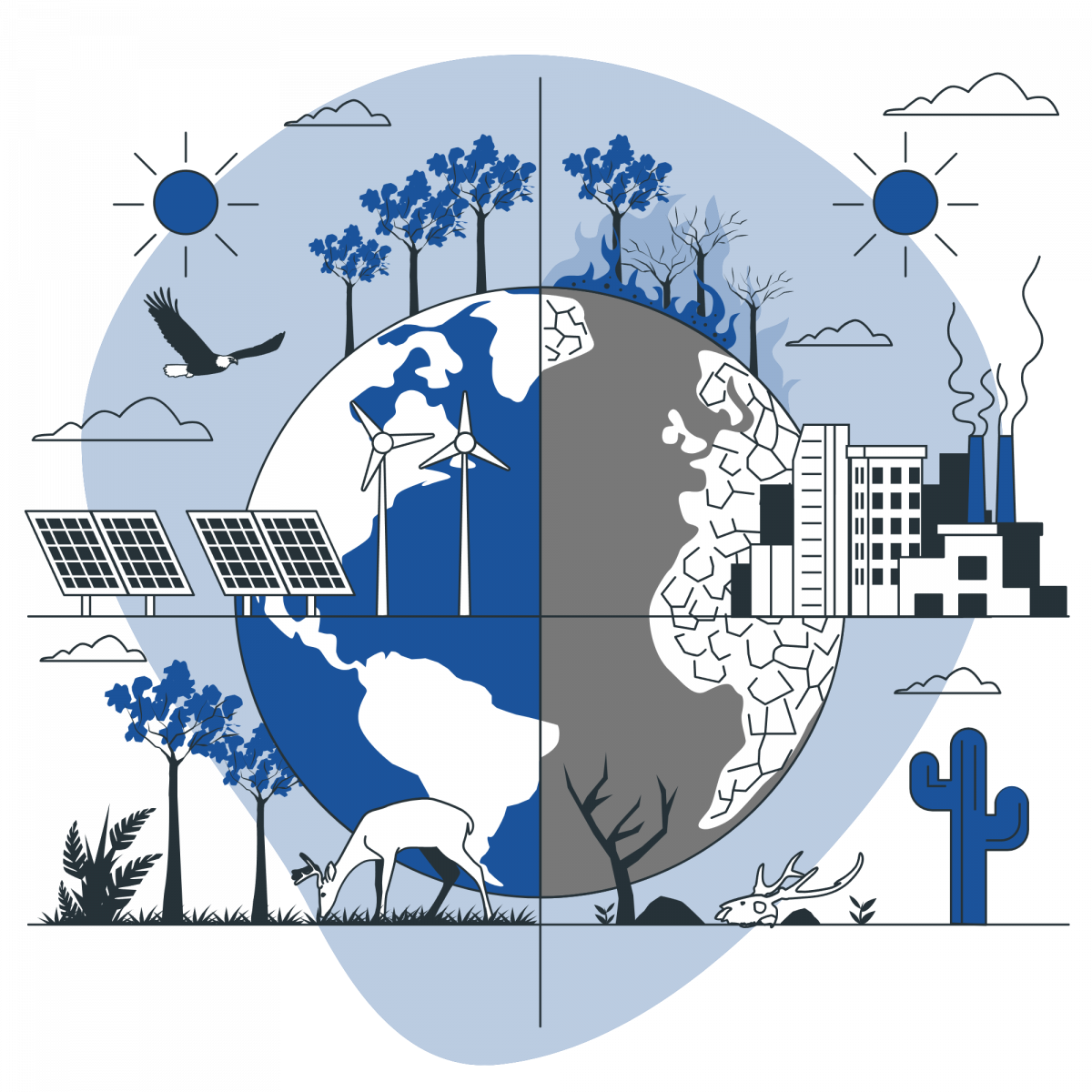Who are we?
Transforming settlements into sustainable and climate change resilient human habitats is on the front burner in this century. The World Bank’s 2009 Urban Strategy highlighted Developing Countries as the focus of this transformation — a challenge, but also a huge opportunity. While cities are responsible for growing global energy consumption, expected to rise above two-thirds, they are also increasing GHG emission levels (IEA 2008). In rural areas, livelihoods and food security are impacted by increasing GHG levels that manifest as rising temperatures.
In 2016, the United Nations Conference on Housing and Sustainable Urban Development (Habitat III) highlighted the critical challenges of planning and managing settlements (cities, towns, and villages) as drivers of sustainable development, providing guidance for the Sustainable Development Goals (SDGs) and the Paris Agreement on Climate Change.

The Urgency
The challenges facing human habitats in West Africa are urgent and complex. High population density intensifies the spread of pandemics and epidemics such as COVID-19, while environmental pressures escalate the difficulty of maintaining livable conditions.
Rising Energy Use & GHG Emissions
Cities already consume more than two-thirds of global energy and drive rising greenhouse gas emissions.
Climate Risks to Coastal & Inland Cities
Flooding, sea-level rise, and drought threaten the safety and sustainability of urban centers.
Population Pressure & Public Health Challenges
Overcrowding magnifies health risks and strains resources.
Our Research Pillars
The WASCAL Doctoral Research Programme on Climate Change and Human Habitat addresses these issues directly, combining two global research priorities:
- Mainstreaming climate change adaptation and mitigation strategies into city operations.
- Improving rural environments to reduce migration pressure on overcrowded cities.
This programme provides young West African researchers with a platform to engage in cutting-edge research, assessing and modeling the impacts of climate change on human habitats — and vice versa — through five key focus area
Settlement Dynamics and Modeling
Green Infrastructure and Urban Development
Transport Planning and Sustainable Mobility
Rural and Urban Migration Issues
Professor Okhimamhe, Appollonia A.
Dr. Emmanuel Tanko Umaru
Mrs Lucy Yiye Peter
Dr. Mary Odekunle
Meet the Team Driving Change
Our work is powered by a dedicated team of researchers, advisors, and partners committed to shaping sustainable and climate-resilient human habitats in West Africa. Each member brings expertise, passion, and innovation to tackle the complex challenges of urban and rural transformation in a changing climate.




